
PhenoVue Fluor 488 - WGA
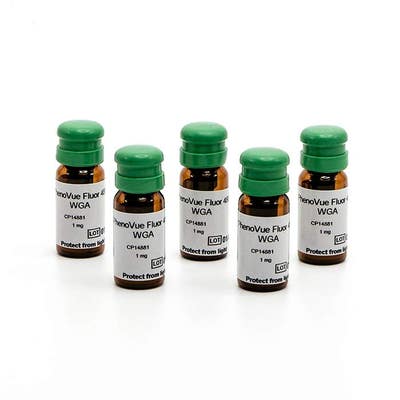
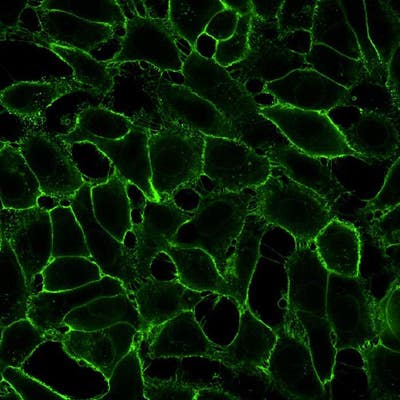
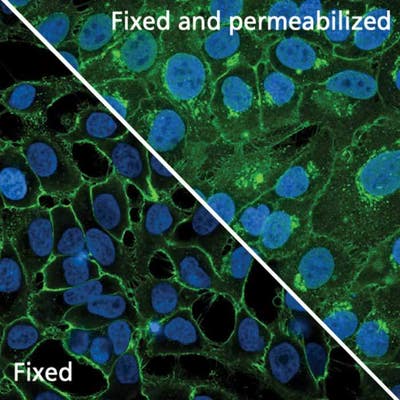 View All
View All
PhenoVue Fluor 488 - WGA
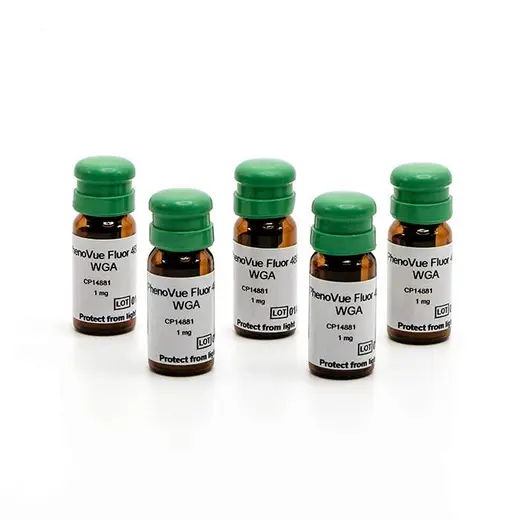
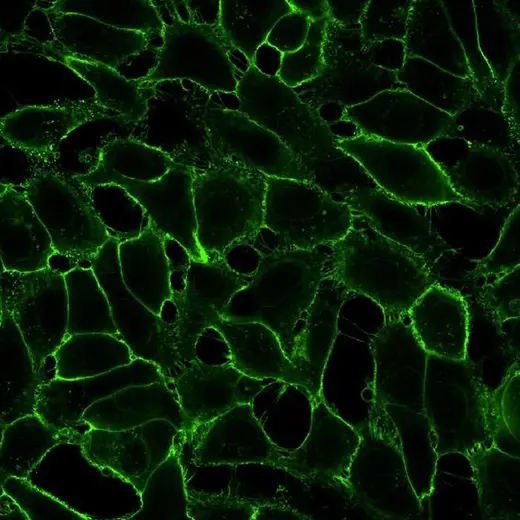
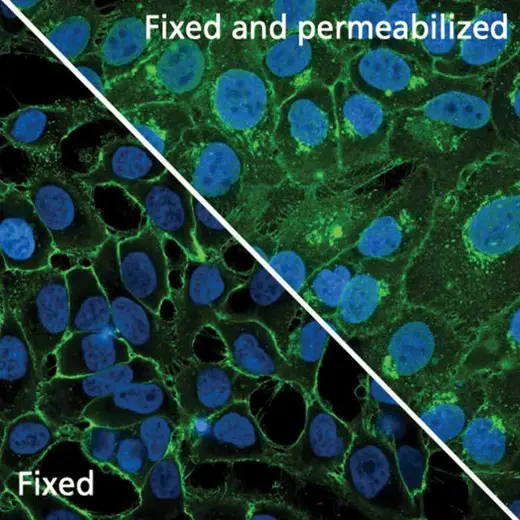
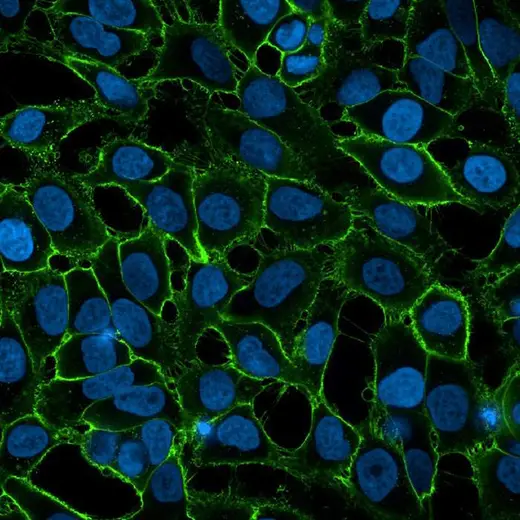




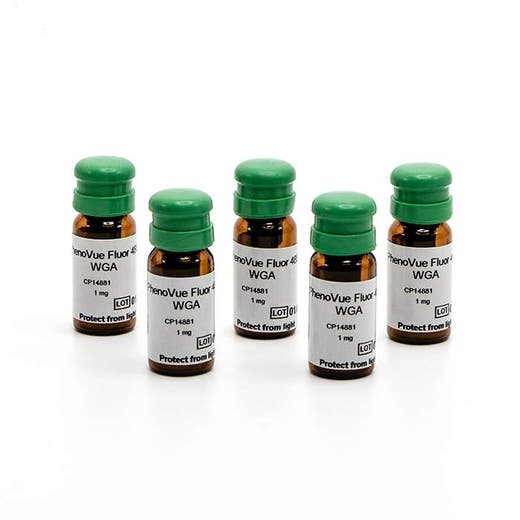
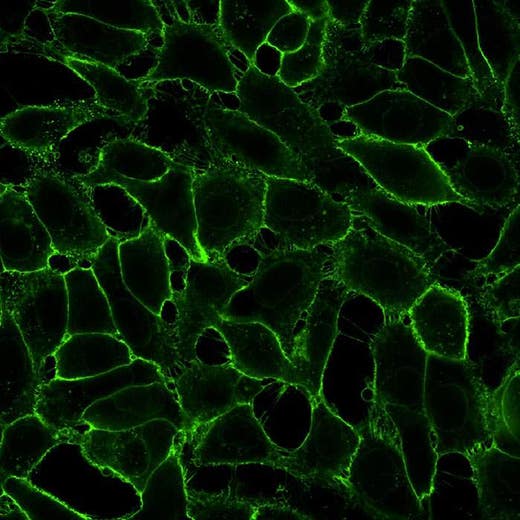
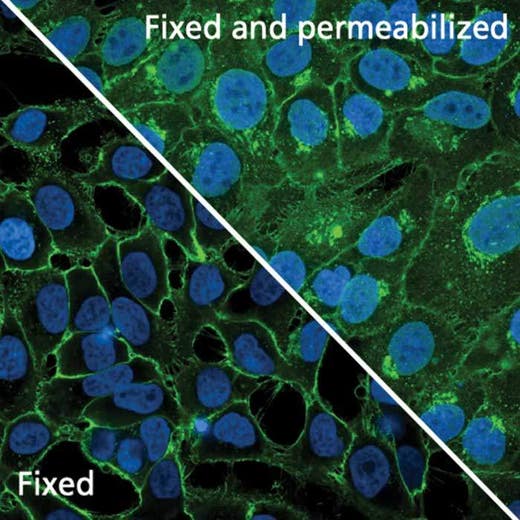
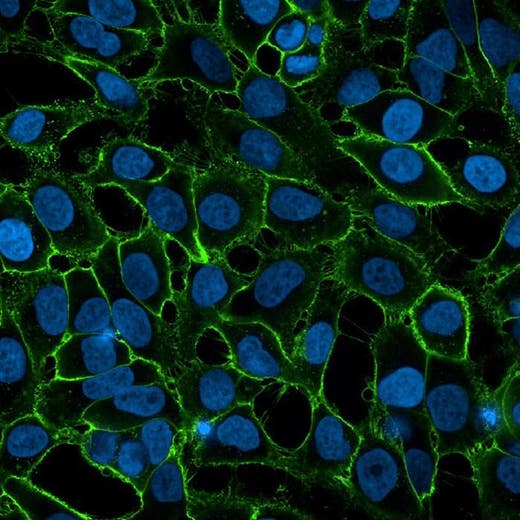




PhenoVue Fluor 488 - WGA is a fluorescent lectin which displays high affinity for sialic acid and N-acetylglucosamine residues of glycoproteins and glycolipids present at the cellular plasma membranes. It can be used for cellular membrane staining, particularly the Golgi apparatus.
PhenoVue Fluor 488 - WGA exhibits bright green fluorescence and is validated for use in imaging microscopy and high-content screening applications.
Part of Revvity's portfolio of cellular imaging reagents, PhenoVue Fluor 488 - WGA has a maximum excitation wavelength of 495 nm and a maximum emission wavelength of 520 nm.
View our extensive validation data in the Product Information Sheet within the Resources tab below.
| Feature | Specification |
|---|---|
| Color | Green |
| Filter | FITC |
| Fluorophore | PhenoVue™ Fluor 488 |
| Organelle and Cell Compartment | Golgi Apparatus |
PhenoVue Fluor 488 - WGA is a fluorescent lectin which displays high affinity for sialic acid and N-acetylglucosamine residues of glycoproteins and glycolipids present at the cellular plasma membranes. It can be used for cellular membrane staining, particularly the Golgi apparatus.
PhenoVue Fluor 488 - WGA exhibits bright green fluorescence and is validated for use in imaging microscopy and high-content screening applications.
Part of Revvity's portfolio of cellular imaging reagents, PhenoVue Fluor 488 - WGA has a maximum excitation wavelength of 495 nm and a maximum emission wavelength of 520 nm.
View our extensive validation data in the Product Information Sheet within the Resources tab below.








PhenoVue Fluor 488 - WGA








PhenoVue Fluor 488 - WGA








Product information
Overview
WGA is a plant lectin that binds different carbohydrate motifs and displays high affinity for sialic acid and N-acetylglucosamine residues of glycoproteins and glycolipids present at the cellular plasma membranes.
Fluorescent WGA derivatives are commonly used for staining the cellular membranes of mammalian cells, particularly Golgi apparatus which is glycoprotein-enriched. In addition, fluorescent WGA derivatives are also routinely used for the staining of skeletal muscle cells and tissues, as well as in cardiac fibrosis.
PhenoVue Fluor 488 - WGA can be used to visualize cellular membranes in immunofluorescence, immunohistochemistry and flow cytometry, as well as high-content analysis and screening applications.
Additional product information
Features
| Numbers of vials per unit | 5 |
|---|---|
| Quantity or Volume Per Vial | 1mg (29.2nmoles) |
| Form | Lyophilized |
| Storage | 2-8°C |
| Recommended working concentration | 5 µg/mL (146nM) |
| Maximum excitation wavelength | 495 nm |
| Maximum emission wavelength | 520 nm |
| Common filter set | FITC |
| Live cell staining | Yes |
| Fixed cell staining | Yes. See Product Information Sheet for more information |
| Equivalent number of microplates | 36-100 x 96-well microplates 30-100 x 384-well microplates 55-160 x 1536-well microplates |
Specifications
| Color |
Green
|
|---|---|
| Form |
Lyophilized
|
| Maximum Emission Wavelength (Emmax) |
520 nm
|
| Maximum Excitation Wavelength (Exmax) |
495 nm
|
| Application |
High Content Imaging
Microscopy
|
|---|---|
| Brand |
PhenoVue™
|
| Detection Modality |
Fluorescence
|
| Filter |
FITC
|
| Fluorophore |
PhenoVue™ Fluor 488
|
| Organelle and Cell Compartment |
Golgi Apparatus
|
| Quantity |
5 x 1 mg
|
| Sample Type |
Live and fixed samples
|
| Shipping Conditions |
Shipped Ambient
|
| Storage Conditions |
2-8 °C, protected from light
|
| Type |
Individual Reagent
|
Image gallery








PhenoVue Fluor 488 - WGA








PhenoVue Fluor 488 - WGA








Spectra Viewer
Resources
Are you looking for resources, click on the resource type to explore further.
This flyer describes Revvity's PhenoVue cellular imaging reagents.
Fluorescent WGA conjugates represent a method of choice for labelling the cellular membranes of mammalian cells, particularly...


How can we help you?
We are here to answer your questions.






























